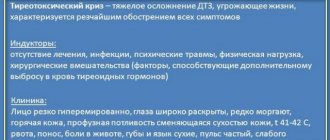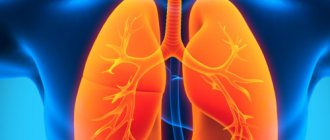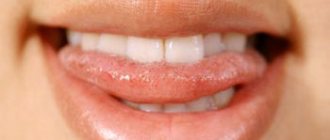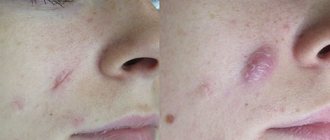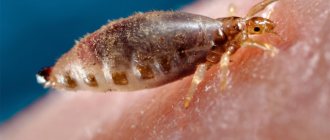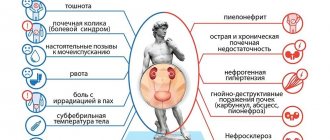New parents are wondering what the main causes of regurgitation in newborns after feeding are. Doctors, given their constant workload and limited appointment time, are not able to answer this question. Let's try to figure out why the condition occurs and how to prevent it.
Regurgitation or vomiting: where is the line?
An infant does not know how to talk and explain what is bothering him. He conveys his negative emotions, discomfort and pain through crying. And if it is accompanied by regurgitation, then an inexperienced mother is ready to call an ambulance. And this is not always correct.
Regurgitation is a natural reflex process in a baby, which does not bring him suffering , and in some situations makes him feel better. It is based on partial emptying of the stomach. In this case, the cerebral cortex is not involved in the process, and there is no tension in the abdominal muscles.
It would be ideal if the newborn falls asleep immediately after feeding, then the food will be better absorbed
This condition is not accompanied by pathological symptoms - pale skin, sweating, twitching of the legs.
The volume of contents does not exceed 3 tablespoons . Regurgitation occurs after feeding in infants immediately or within an hour.
Vomiting is a multi-reflex process, due to the activation of a center in the cerebral cortex, accompanied by complete emptying of the stomach. Serves as a symptom of many pathologies and abnormalities in children of the first year of life.
If a child regurgitates more than 30 ml of milk or formula, then this is a suspicion of vomiting. The child is also restless or lethargic, crying, and pounding his legs. If it occurs repeatedly, an ambulance is called.
Crying in infants is also observed when regurgitation due to fright or choking.
We present the distinctive features in the table.
| Signs | Vomit | Physiological regurgitation |
| Discharge volume | More than 30 ml | Less than 30 ml |
| Eating | Baby often refuses breast or bottle | Enjoys breast milk or formula |
| Weight | Downward trend | Increase according to age standards |
| Urination | Rare | More than 10 times a day |
| Temperature | Can be upgraded | Normal |
| Clinic | Pale skin, cold sweat, abdominal muscle tension, crying, sleep disturbance | Absent |
| When does it occur | Any time, regardless of food intake | Within an hour after feeding |
Thus, you need to more closely monitor the child’s well-being so as not to miss the disease. Regurgitation in newborns after fountain feeding should alert doctors and parents. This is a consequence of pathology.
Shaeva M.R., breastfeeding consultant, St. Petersburg
The prevention of many intestinal ailments in children of the first year of life is rational breastfeeding. It is important for the baby to grasp the nipple and areola. The lips are turned out. Feeding on demand should be done within reason.
With incomplete latching and frequent breastfeeding, regurgitation occurs. A breastfeeding specialist can help you avoid this. In many cities, home visits are possible. He will explain and show how to set up the process correctly.
If a child spits up, but feels well, is gaining weight, and there is no lag in physical and mental development, then there is no reason to worry. This is due to the immaturity of the gastrointestinal tract and is not life-threatening.
Eliminating regurgitation in newborns
In order to prevent regurgitation in newborns, you should follow fairly simple rules that pediatricians recommend to every mother. First of all, you should:
- feed the baby only in a semi-upright position;
- You cannot feed the baby in a horizontal position;
- the child’s head and upper body should be at an angle of 60 degrees relative to the floor surface;
- before feeding, it is necessary to massage the tummy and place the baby on the stomach for five minutes;
- Breastfeeding must be done at the same time;
- Bottle feeding should only be done with warm formulas.
Remember that regurgitation in newborns can persist for up to 6 months. If this phenomenon does not harm the baby, then you will not need special medical means to combat it.
Children under one year of age react to any trouble in the upper gastrointestinal tract by vomiting or regurgitating. Pediatricians call this phenomenon regurgitation and vomiting syndrome (SVR). It occurs in more than 80% of children of this age, which is due to the anatomical and physiological characteristics of the digestive tube at the junction of the esophagus and the stomach.
Causes
The leading factors leading to physiological regurgitation are:
- Incorrect feeding technique (how to properly feed a newborn baby, see here):
- poor nipple latching due to its irregular shape or the child’s anatomical features (short frenulum);
- uncomfortable position during breastfeeding;
- age-inappropriate flow of formula through the nipple.
The baby is soothed by his mother's breast, so sometimes it is difficult for him to refuse feeding, even when there is excess
- Restlessness or increased excitability of the baby, leading to greedy sucking movements and additional swallowing of air (aerophagia).
- Laying on the stomach after eating.
- Various manipulations with the baby immediately after feeding - swaddling, diaper changing, games, washing.
- No belching of air.
- Erratic frequent attachment to the breast . This is the main reason for overeating.
- Intolerance to the mixture used.
- Prematurity.
- Chronic constipation.
We invite you to watch a video that will complement our article if you still have any questions about regurgitation: Vomiting and pathological regurgitation in newborns after feeding are caused by:
- Cerebral palsy (CP).
- Hydrocephalus.
- Encephalopathy due to jaundice. There is a separate article about jaundice in newborns.
- Infectious and inflammatory diseases of the stomach, intestines, and brain.
- Fever.
- Lactase deficiency.
- Anomalies in the structure of the gastrointestinal tract.
- Enzyme deficiency with damage to the liver and pancreas.
- Diabetes.
- Kidney failure.
- Severe congenital heart defects.
Vomiting is accompanied by a violation of the general condition, dehydration and loss of body weight . With pathological regurgitation, increases are noted that do not correspond to age norms. What other factors are there for weight gain in newborns, see here.
Treatment of young patients in such cases occurs inpatiently due to the risk of severe complications.
Karnukhov S.I., pediatric gastroenterologist, Tver
Regurgitation an hour after feeding occurs due to lactase deficiency. Most people develop it due to overeating!
Children have few stomach enzymes; they do not have time to completely break down formula/milk in a short time. And at the next feeding, the body gets rid of the excess by regurgitation.
The only thing that helps is the selection of a feeding regimen at equal intervals. Enzyme preparations are prescribed for diagnosed pathology!
Why does a baby spit up after eating?
There are always reasons for any process in our body. In this case, the reasons most often are:
- Binge eating. Often the baby simply “doesn’t feel” that he’s already full. As a result, excess air is expelled from the stomach (belching) along with excess food.
- Weak sphincter blocking the “passage” from the stomach to the esophagus. Such a “valve” will reach its maturity only by 6 months of age.
- Excessive gas formation. If, after eating, too much gas forms in the baby’s stomach, they “ask” to come out. And along with them, the milk you drink comes out. By the way, gas formation is the cause of intestinal colic in a baby. When feeding, it is important to ensure that the baby grasps the mother's breast correctly or does not swallow too much air from the bottle.
- Sometimes experts cite allergies to certain foods as the cause of regurgitation.
- Some developmental defects can also cause a baby to spit up frequently. For example, if the baby has a narrowed transition between the stomach and intestines.
Advice from Dr. Komarovsky
Oleg Evgenievich advises first of all to consult a doctor. Among the causes of regurgitation in newborns after feeding, Komarovsky assigns a large role to overeating.
Reducing the sucking time or reducing the volume of formula used will help relieve parents of a lot of worries. Komarovsky suggests calculating the approximate volume that a child can eat in one feeding and not regurgitate . This portion is given to the newborn, and not what is prescribed according to the recommendations.
Even regurgitation after each feeding is not a deviation from the norm if the baby is active, sleeps well and gains weight. However, you should always talk to your doctor about the situation. He will prescribe an additional examination to exclude pathology.
Regurgitation intensity
The child should be shown to a specialist in the following cases:
To determine the intensity of regurgitation, doctors have developed a certain scale:
- Five or fewer regurgitations per day, volume up to 3 ml – 1 point.
- More than five regurgitations per day, in a volume of more than 3 ml - 2 points.
- More than five regurgitations per day, in an amount up to half the volume of milk consumed, but not more than half of the feedings - 3 points.
- Regular regurgitation of food in a small volume for half an hour or more (after each feeding) – 4 points.
- Regurgitation of half or even the full volume of milk in half of all feedings – 5 points.
If your result is three or more points, then the child should be shown to the doctor as soon as possible.
What to do when spitting up and vomiting
After feeding, the baby is kept in an upright position (in a column) until the air comes out. If at the same time the baby begins to burp, then you should not panic.
Actions boil down to preventing choking or aspiration (vomit getting into the respiratory tract).
This is achieved by holding the child in a column with the body tilted forward (on the shoulder). Then place the baby on his side in the crib, securing the position with pillows. This will ensure a clear airway and mouth when repeating the process.
Malyukova E.S., Moscow, pediatrician
All parents experience regurgitation after feeding. There are different reasons for regurgitation in newborns after feeding. And parents try to alleviate the baby’s condition with medications (Bobotik, Plantex, probiotics) that do not affect the process.
The result is an abundance of allergic reactions, with which people go to the clinic. It is important to explain during initial patronage that physiological regurgitation is not a disease. It cannot be treated with drugs.
What to do if your baby spits up frequently
There are no anti-regurgitation remedies in medicine that will absolutely reliably relieve a child of this phenomenon. If the baby spits up after each feeding, it is necessary to follow the rules as a preventive measure.
- Reduce portion size, but increase the number of feedings.
- During feeding, monitor the baby's position - vertical or semi-vertical position, the nose should be free, the mouth should completely capture the nipple and areola.
- Before each meal, the baby must be placed on his tummy and stroked around the navel clockwise to expel excess gases.
- After feeding, hold it upright to allow air to escape.
- If afterward the baby is getting ready for bed, you should not put him on his back, put him on his side - this is a safe position for the baby during burping. On his back, he may choke on the regurgitated mass.
- When using a bottle, check the hole in the nipple; it should allow the mixture not to spill out, but to flow out in drops.
- There should be no air in the nipple before feeding.
- The crib should be positioned so that the baby's head is elevated.
- You should not smoke near your baby; this will negatively affect the pathology of the muscles of the stomach and esophagus.
It is worth noting that poor nutrition is one of the causes of regurgitation. This leads to bloating and subsequent regurgitation. The ideal food for a newborn is breast milk.
If the baby is bottle-fed, the doctor will conduct a comprehensive study and select a suitable formula for the baby.
How an osteopathic doctor can help
An osteopathic doctor specializes in birth injuries and pathologies of newborns, eliminating not the symptoms, but the immediate cause of the disease.
What a pediatric osteopath can do:
- eliminate the consequences of perinatal encephalopathy (PEP),
- remove compression of the base of the skull - a common birth injury,
- improve the condition of the vagus and glossopharyngeal nerves,
- release the tension zone in the thoracic diaphragm, thus improving digestion.
Osteopaths often work together with neurologists and gastroenterologists - this increases the effectiveness of treatment and rehabilitation and allows them to achieve high results.
How not to confuse newborn burping with vomiting
The mechanism of regurgitation and vomiting is almost the same.
In both cases, gastric contents enter the esophagus and further release of masses through the oral cavity. But if belching is a normal phenomenon for infants, then vomiting indicates the presence of an infectious process or other pathological conditions. Vomit is characterized by abundance, fetid odor, and the presence of undigested pieces.
During the process of regurgitation, milk flows out in a thin stream (like saliva), while vomit can flow like a fountain and be released even through the nasal passages.
What other signs can be used to distinguish belching from vomiting?
The child's condition.
The most important indicator to pay attention to. Physiological belching does not cause concern and does not cause any discomfort to the baby
If vomiting is a sign of an infectious disease, the child will be lethargic, capricious, and have problems with appetite.
Body temperature.
When vomiting, body temperature rises to 38-39.5 degrees. At the same time, signs of intoxication are observed: diarrhea, weakness, chills.
Contents of the mass.
When a baby burps, milk comes out, which may be curdled. It often contains curdled pieces. Vomit in infants often has a foul odor and may contain bile acids.
Color.
When regurgitated, the masses are white, cream or milky in color. If the contents of the stomach are green or brown, this is vomiting.
Time of occurrence.
The baby belches milk strictly after feeding (immediately or after a few minutes); vomiting can occur at any time, regardless of food intake.
The baby spits up breast milk, but there is no formula why?
If your baby spits up a lot of breast milk at each feeding, then in some cases your pediatrician may advise you to try switching to formula. Many babies stop burping on formula. Of course, the question arises, why do babies burp on breast milk, but not on formula? There are two explanations for this.
- If your newborn stops spitting up after switching to formula, it may mean he or she is lactose intolerant. In general, most babies usually digest lactose, since it is a natural sugar in breast milk, that is, in fact, part of it. But some newborns may be allergic or intolerant to lactose, and their body will actively reject it, which means they will constantly spit up after eating. To exclude this cause, it is necessary to be tested for lactose intolerance.
- If the allergy is not confirmed, the baby continues to spit up milk, and the formula is perfectly retained inside the tummy, then the reason may be the correctly selected portions of the formula. The fact is that when you prepare formula for your child, you completely follow the instructions on the package. And when you feed milk, you don’t always accurately determine how much the baby has eaten. It turns out to be a banal overfeeding with milk, while the baby eats exactly as much formula as he needs. The advice in this case is simple: return the baby to breastfeeding and monitor the amount of breast milk consumed. To do this, you may have to express into a bottle where the portion sizes are clearly visible.
To summarize, this problem - spitting up problem - is in most cases a common occurrence that is not worth worrying about. Up to 3-4 months, regurgitation is mostly caused by the physiological immaturity of the gastrointestinal tract of young children. With age, the attacks decrease and soon disappear on their own.
Which regurgitations are normal and which are not?
Regurgitation occurs as a result of the involuntary throwing of small portions of stomach contents, first into the esophagus, and then into the pharynx and oral cavity. Often it is also accompanied by the passage of air. Mostly, this condition is observed in infants immediately or shortly after feeding. The baby may regurgitate partially curdled or uncurdled milk. This can happen about five times a day, in small volumes (no more than three tablespoons).
With normal passage of food from the stomach, the newborn:
- Doesn't cry after burping.
- Does not show irritability or lethargy, but behaves as usual.
- Gaining weight steadily.
If a newborn burps too often, intensely (like a fountain), in large volumes (more than three tablespoons), this happens immediately after each feeding, causes discomfort to the baby and leads to weight loss, it is necessary to consult a doctor as soon as possible.

